What are Anti-snoring Devices
Anti-snoring devices are specialized products designed to help alleviate or eliminate snoring, a common condition that affects many individuals during sleep. Snoring occurs when air flows past relaxed tissues in the throat, causing them to vibrate and produce the characteristic sound. While snoring can be benign, it can also be a symptom of obstructive sleep apnea (OSA), a condition that requires medical attention. These devices are intended for individuals who want to reduce or stop snoring for a more restful sleep, and they may also be used by their partners who are affected by the noise.
The principle behind anti-snoring devices is to maintain an open airway through various means. Some devices reposition the jaw or tongue to prevent obstruction, while others open up nasal passages or provide external support to maintain proper breathing patterns. The effectiveness of each device depends on the underlying cause of snoring and the user's specific anatomy. In some cases, these devices can also encourage side sleeping, which naturally reduces snoring by preventing the tongue from falling back into the throat.
Anti-snoring devices come in many forms, including nasal strips, mandibular advancement devices (MADs), tongue-stabilizing devices (TSDs), chin straps, and more elaborate electronic gadgets that may even monitor sleep patterns. It's important to note that while these devices can provide relief from snoring, they are not a substitute for professional medical advice or treatment for conditions like sleep apnea.
Types of Anti-snoring Devices
The market offers a variety of anti-snoring devices, each designed with specific features to address different types of snoring issues:
Mandibular Advancement Devices (MADs): These mouthpieces work by advancing the lower jaw slightly forward, increasing the space behind the tongue and reducing airway resistance. MADs are commonly used and recommended due to their effectiveness for many snorers.
Tongue Stabilizing Devices (TSDs): Resembling a small bulb, TSDs hold the tongue in place to keep it from falling back into the throat. They are suitable for people who cannot comfortably wear MADs.
Nasal Strips and Dilators: These external adhesives or internal dilators widen the nostrils to improve airflow through the nasal passages, ideal for those whose snoring originates from their nose.
Chin Straps: A simple solution for keeping the mouth closed during sleep and encouraging breathing through the nose. Chin straps are often used in conjunction with other anti-snoring devices.
Vestibular Shield: This device blocks oral airflow, forcing the wearer to breathe through their nose which can help reduce snoring if nasal passages are clear.
Each type of device serves common use cases and is chosen based on individual needs and preferences.
How to choose Anti-snoring Devices
When selecting anti-snoring devices for commercial purposes or resale, businesses must consider various factors that align with their customers' needs:
- Evaluate the type of snoring issue your target customers face. For instance, if nasal congestion is a common complaint, nasal strips or dilators might be most effective.
- Consider comfort and ease of use since these devices are worn during sleep. Devices like MADs require customization for fit, while others like nasal strips are one-size-fits-all.
- Assess material quality ensuring that products are made from safe, non-toxic materials like medical-grade silicone or BPA-free plastics that will be in contact with users' skin or oral cavity.
- Look into adjustable features or sizes that accommodate different users and consider offering a range of options to cover various requirements.
- Examine product certification and safety standards to ensure compliance with health regulations in your market.
By carefully reviewing these considerations based on insights from the Types section and understanding your customer demographic's needs, businesses can select an assortment of effective anti-snoring solutions for their inventory.
Best Anti-snoring Devices on Alibaba.com
For businesses seeking reliable sources of anti-snoring solutions, Alibaba.com offers an extensive selection from suppliers around the globe. The platform provides access to a wide variety of anti-snoring devices suitable for different preferences and requirements. With options ranging from simple nose clips and chin straps to advanced MADs and TSDs, Alibaba.com enables businesses to cater to diverse customer needs.
The advantages of purchasing on Alibaba.com include being able to find suppliers who offer customization services which can cater to specific business needs. Furthermore, with Trade Assurance service, transactions are safeguarded until delivery is confirmed, providing an additional layer of security for buyers. Alibaba.com's global reach means businesses can source products no matter where they are located while benefiting from features such as mobile purchasing capabilities and local language support.
As a wholesale marketplace with a vast product range across numerous categories, Alibaba.com is committed to aiding small and medium-sized enterprises in scaling up their operations by providing streamlined online trade solutions. By choosing Alibaba.com as their sourcing platform, businesses not only gain access to quality anti-snoring devices but also leverage a system designed to simplify international trade processes.
Common FAQs for Anti-snoring Devices
What types of anti-snoring devices are most popular among consumers?
The popularity of anti-snoring devices can vary, but Mandibular Advancement Devices (MADs), Tongue Stabilizing Devices (TSDs), nasal strips, and chin straps are among the most sought-after due to their ease of use and effectiveness for various types of snorers.
How can businesses determine which anti-snoring devices to stock?
Businesses should assess the needs of their target market, consider comfort and ease of use, examine the materials and safety certifications, and provide a range of options to cater to different preferences when determining which anti-snoring devices to stock.
Are there customizable anti-snoring devices available for businesses to resell?
Yes, there are suppliers on Alibaba.com that offer customizable anti-snoring devices, which can be tailored to meet specific business requirements or customer needs.
What materials are commonly used in the manufacturing of anti-snoring devices?
Common materials used in anti-snoring devices include medical-grade silicone, BPA-free plastics, non-woven fabrics, and metals for internal support structures.
How do businesses ensure the anti-snoring devices they purchase meet safety standards?
Businesses should verify the quality certification and safety standards compliance of the anti-snoring devices they plan to purchase, ensuring that they adhere to relevant health regulations in their market.
Can businesses find eco-friendly anti-snoring device options on Alibaba.com?
While specific eco-friendly options may vary, businesses can filter searches on Alibaba.com for suppliers that offer anti-snoring devices made from sustainable or eco-friendly materials.
What are the key selling points for anti-snoring devices in a B2B context?
In a B2B context, key selling points for anti-snoring devices include their potential to improve sleep quality, ease of use, material safety, adjustable features or sizes, and the ability for customization.
How does the effectiveness of different types of anti-snoring devices compare?
Effectiveness can vary widely based on the user's specific condition; MADs are effective for many snorers, while TSDs might be preferable for those who cannot wear MADs comfortably. Nasal strips are beneficial for snorers with nasal passage issues.
Are there any anti-snoring devices that also track sleep patterns?
Yes, some advanced electronic anti-snoring devices come with integrated sensors that monitor sleep patterns and provide additional insights into sleep quality.
What factors should be considered when choosing between manual and electronic anti-snoring devices?
When choosing between manual and electronic anti-snoring devices, consider factors such as power source requirements, ease of use, maintenance needs, additional features like sleep tracking, and consumer preference for technology integration.






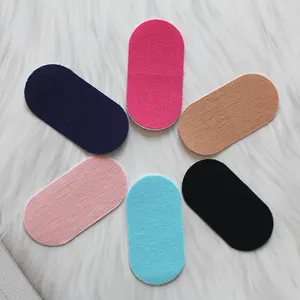
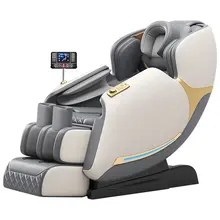

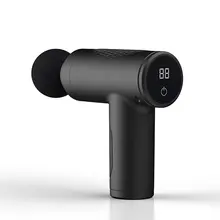




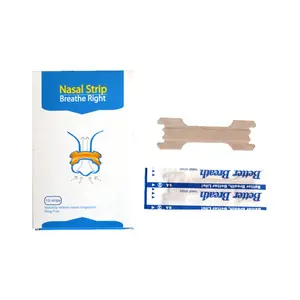


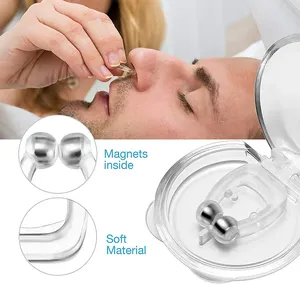
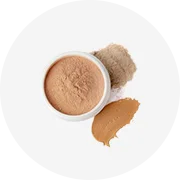













 浙公网安备 33010002000092号
浙公网安备 33010002000092号 浙B2-20120091-4
浙B2-20120091-4